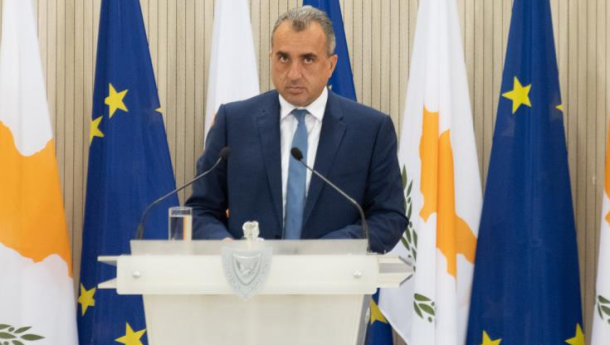
New measures to ease restrictions to combat the coronavirus pandemic were announced on Thursday by Health Minister Michael Hadjipantela, who noted that the word "respect" is the key to the new era of fighting the pandemic.
According to the Minister`s statements, the Council of Ministers decided from April 11, among other things, to abolish the mandatory use of protective masks outdoors and the abolition of safe passes in workplaces, with the exception of employees in nursing homes, closed structures, hospitals, medical centres and health professionals.
As of the same date, the obligation to display a safe pass in businesses that serve the public, as well as government and public sector service departments that serve the public, in archaeological sites, museums, historical sites, visual arts sites and galleries, construction sites, farmers` markets, bazaars and fairs, is also abolished.
In addition, from 11 April, occupancy rates in theatres, cinemas and auditoriums are also increased to 100% capacity, while teleworking is recommended at a rate of 25% in private and public sector enterprises and organisations, as well as local authorities.
Announcing the measures, Hadjipantela stressed that "it is imperative that we all demonstrate individual responsibility and responsible behaviour. We must follow the instructions of the Ministry of Health and the members of the Scientific Advisory Committee.”
"Today`s announcement should not be misinterpreted or convey the wrong message," he said, adding that "the coronavirus is still here, it is still scattered in the community. That is why, after all, 200 of our fellow citizens are being treated in public hospitals with COVID."
"Experts insist that the coronavirus is not a simple cold," he said.
According to the Health Minister, "the word `respect` is key in the new era of fighting the pandemic. First of all, respect for ourselves and then respect for our fellow human beings, respect for the rules".
The new relaxations
In detail, the Council of Ministers decided:
a) from 11 April 2022, the abolition of the mandatory use of protective masks outdoors.
b) from 11 April 2022, the abolition of the Safe Pass in workplaces, in compliance with the guidelines of the Ministry of Health. It is recommended to carry out a self-test in case of symptoms. Employees in nursing homes, closed structures, nursing homes, medical centres and health professionals are excluded.
(c) from 18 April 2022, the abolition of the Safe Pass in retail and shopping centres (excluding food outlets within shopping centres).
(d) as of April 11, 2022, the automatic release of individuals who are restricted as positive cases on day 7 of self-limitation without the administration of a Rapid Antigen Detection Test (Rapid Test) provided they are not actively symptomatic. Discharge earlier than day 7 can be done by PCR test (with negative result) on day 5 of diagnosis at a cost to be borne by the person concerned. The measure will also apply to existing cases on 11 April 2022. Special arrangements apply to closed structures and nursing homes.
(e) from 11 April 2022, the reduction of the self-limitation period from 7 to 5 days for persons who are close contacts of a confirmed positive case and under the protocol are placed in restraint, assuming they are not actively symptomatic. Obligation for a Rapid test on the 3rd and 5th day after contact. The measure will also apply to existing cases on 11 April 2022.
(f) from 11 April 2022, reducing the time period of the `test to stay` measure (where applicable) from 7 to 5 days. The measure will also apply to existing cases on 11 April 2022. Pupils who are an intra-family contact positive case are excluded from the use of the “test to stay” measure.
(g) On April 11, 2022, the extension of the "test to stay" measure (where applicable) to after-school evening activities for pupils.
(h) from 11 April 2022, the abolition of Safe Pass display at businesses which serve the public, government and wider public sector departments/agencies which serve the public, at archaeological sites, museums, historic sites, visual arts venues and galleries, construction sites and similar businesses, markets, bazaars and fairs.
(i) from 11 April 2022, the increase of occupancy rates in theatres, cinemas and auditoriums to 100% of capacity.
j) as of 11 April 2022, a recommended teleworking rate of 25% in enterprises and organisations, the public and wider public sector, as well as local government authorities.
(k) as of 11 April 2022, patient visits to public and private hospitals are allowed on presentation of a 24-hour antigen rapid test (1 person per visit).
(l) as of May 2, 2022, students present a 48-hour rapid antigen detection test (Rapid test) upon returning to schools followed by a 7-day Rapid test.
(m) Beginning April 11, 2022, group camping is permitted upon presentation of a Safe Pass.
(n) beginning April 15, 2022, the notification of positive diagnoses, deaths and hospitalisations shall be made on a weekly basis.
Asked whether the situation in hospitals is manageable, the Minister of Health replied that there are currently 200 people with Covid in hospital, "of whom at the moment a large percentage, about 30%-50%, are not in our hospitals because of the coronavirus, but went to a public or private hospital for surgery, they were diagnosed with coronavirus and are in our state hospitals."
"As of tomorrow, private hospitals will be informed so that patients who do not need to be treated in the state hospitals with the coronavirus can be treated in private hospitals," he said.
Asked whether the above means the abolition of COVID clinics in hospitals, Hajipantela replied in the negative, adding that "a significant number of our fellow citizens have been severely ill with coronavirus, so we have to keep these beds in SHSO hospital wards for a while longer."



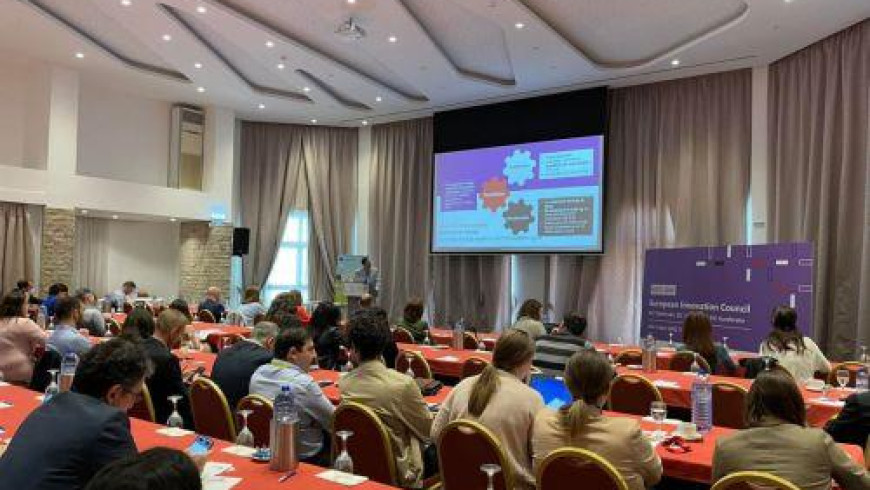

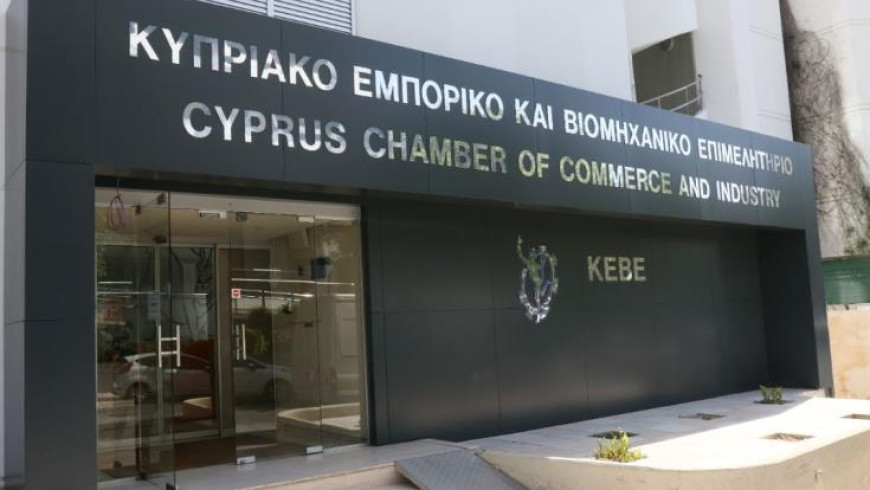
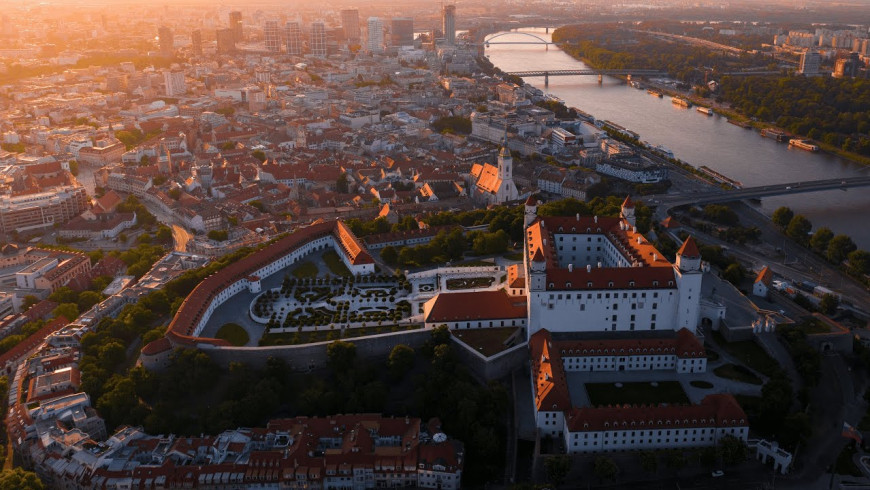

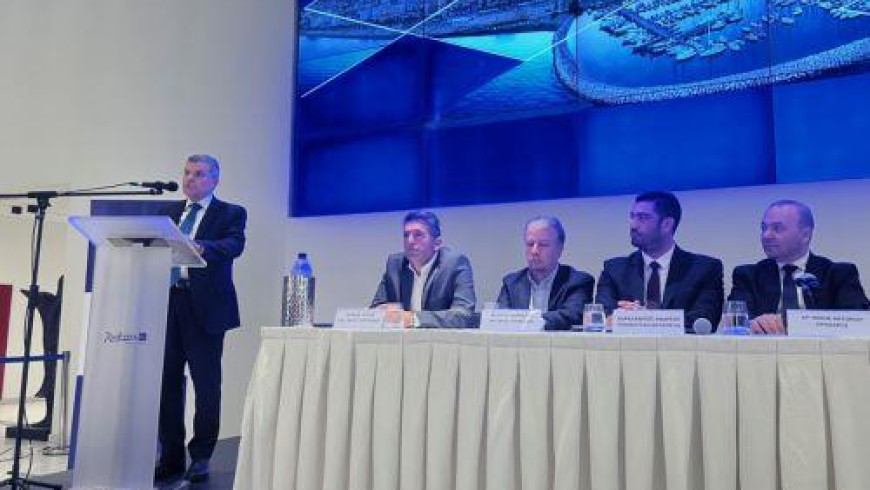





 3287.99
3287.99 1275.09
1275.09
